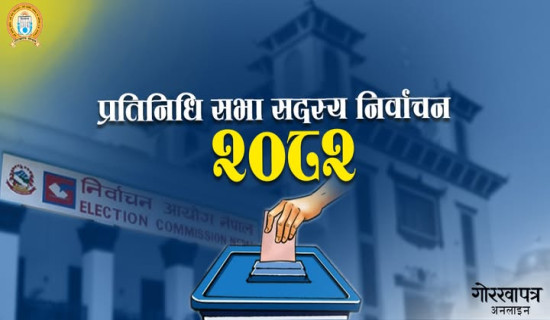- Sunday, 22 February 2026
Joshi's 'Shramatan' mirrors pains of migrant workers
Kathmandu, May 15: BN Joshi’s acclaimed book 'Shramatan', which chronicles the immense suffering and torment faced during the pursuit of foreign employment, is now all set to be published in Hindi after its original Nepali version and the English translation.
When Joshi made this announcement during a recent discourse on the book in the capital, the entire audience responded with enthusiastic applause. Perhaps, it was because the book has evoked deep empathy among all its readers, especially those who have personally endured the harsh realities of foreign employment, it speaks directly to their hearts.
First published five years ago in Nepali by Shangri-La Books, 'Shramatan's English version was published by Nirala Publications, New Delhi, India, two years ago. The English version was translated by Arun Budhathoki and edited by Yuyutsu RD Sharma. For the past two years, the book has been one of the major attractions at Nirala’s stall during the annual International Book Fair held at Pragati Maidan, New Delhi. Joshi is optimistic that the Hindi translation will further expand the book’s readership in India.
'Shramatan' contains a number of deeply moving episodes. Our society has yet to learn to respect labour and labourers. If it did, over 8 million Nepalis would not leave behind entire villages devoid of youth, enduring humiliation and hardship abroad to earn a living. Joshi himself, in the prime of his youth in 1998, fell into the trap of Thai and Burmese agents while en route to Bangkok. Lured by the promise of employment, he and his friends illegally crossed into Malaysia. In this book, he recounts, honestly and unflinchingly, the harrowing experiences he and his companions endured. This unfiltered honesty is the core reason for the book’s popularity.
In Satun, the traffickers forced them to abandon most of their clothes and carry only a small bundle of three kilos of rice and canned fish. Around 9 pm, they were made to lie down in the back of a pickup van which sped off into the night. After some time, they were ordered to hide under a bridge.
Just beyond the bridge, the sea began. Another group was already hiding there. Soon, two boats arrived with flashlights and they were escorted aboard. As soon as the first boat was full, it sped off. Joshi’s group boarded the second one, which followed once it was filled.
Suddenly, a harsh beam of light appeared, and the second boat came to a halt. From the first boat, people were seen jumping into the sea. The second boat quickly changed direction and began to flee, navigating through the waves of water before reaching the edge of a dense jungle. They waded through knee-deep swamp before finally arriving at the top of a hill, where they spent the night swarmed by mosquitoes, sleeping on a raised wooden platform on the tree trunks.
Though they eventually managed to cross into Malaysia, they were arrested and imprisoned for 12 days. Even after their release, the Malaysian police refused to return their passports unless they surrendered half their remaining money. Later, tempted again by false promises, Joshi and his companion attempted to re-enter Malaysia via another illegal route. However, upon sensing another imminent arrest, they escaped back into the forest, returning to the same makeshift shelter.
After the traffickers left saying they would return the next day but never came back, they were forced to endure more suffering, surviving on wild mangoes for days, and facing the life-threatening dangers of the sea once again. They were eventually rescued by an elderly man and made their way back to Satun and, via Hat Yai, returned to Bangkok. Many such harrowing incidents are described in the book.
Yet 'Shramatan' is not only about pain and hardship, it also includes a prolific romantic anecdote involving Joshi’s dramatic relationship with Thai lass Somkit, which adds an element of excitement and emotional depth.
The second part of the book recounts the hardships Joshi endured while working in Gulf countries. One particularly heart-wrenching chapter recounts the tragic story of his brother Govinda, who returned to Nepal in a coffin.
Joshi is honest in his writing, and that sincerity resonates with readers. However, the narrative occasionally lacks the vividness and precision expected from such powerful stories.







-square-thumb.jpg)









